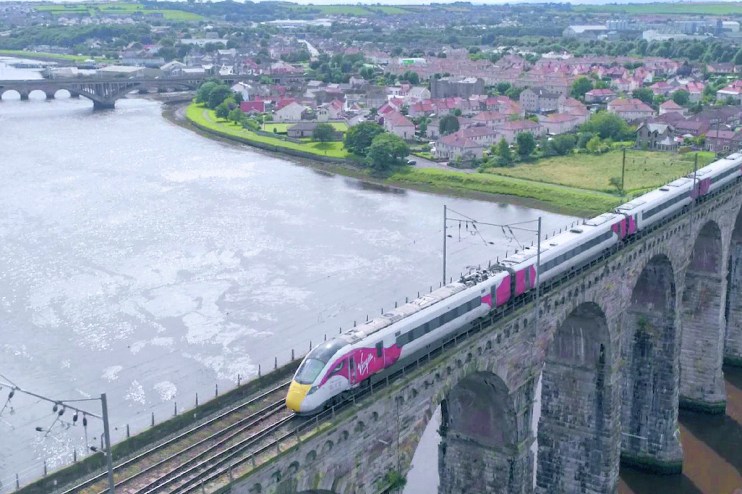Branson’s back? Virgin Trains looks to show up Avanti in bid for west coast route

Sir Richard Branson is set to make a return to Britain’s railways with a bid to run an open access service under the Virgin Trains brand on the West Coast mainline.
Virgin Trains has applied to the industry regulator, the Office of Rail and Road (ORR), to operate four rail paths between London and Birmingham, Manchester, Liverpool and Glasgow.
The application, first reported by the Sunday Times, will see services run hourly from London Euston to Preston via Manchester Piccadilly, Birmingham New Street and Liverpool Lime Street. They will also run every two hours to Glasgow.
It comes over a decade after Branson emerged triumphant in a battle with the government over who should operate the West Coast Main Line franchise deal, a spat that resulted in the suspension of three senior civil servants.
But the billionaire’s luck ultimately ran dry, and he was left seething in 2019 after Virgin Trains, which had operated the route for over two decades, was disqualified by ministers from re-tendering as its application failed to meet pension rules.
A spokesperson for the Virgin Group confirmed the application on Sunday, which it described as the “first step towards exploring what might be possible” with the open access model.
“Open access increases consumer choice and competition, both of which Virgin has always supported,” the spokesperson said.
Privately financed open access operators take full commercial risk and run without the hefty government franchising fees of the mainstay train companies.
The model has gained considerable support in recent years. Proponents argue it boosts competition with larger operators such as GTR, LNER and Avanti, ultimately lowering fares and improving service.
Labour’s general election pledge to renationalisation Britain’s railways notably left room for “open access” providers, such as Firstgroup-owned Lumo and Hull Trains, to continue.
The return of Virgin Trains could provide a much-needed boost to Avanti’s operation on the west coast, which has been plagued by delay in recent years.
The operator was placed on two consecutive short-term contracts in 2022/23 to help it develop a recovery plan. It was awarded a nine-year contract in September but is still facing calls from Northern political and business leaders for its service to be nationalised.
In the 20 years leading up to its disqualification in 2019, Virgin Trains increased passenger numbers from 8m to 42m per year.